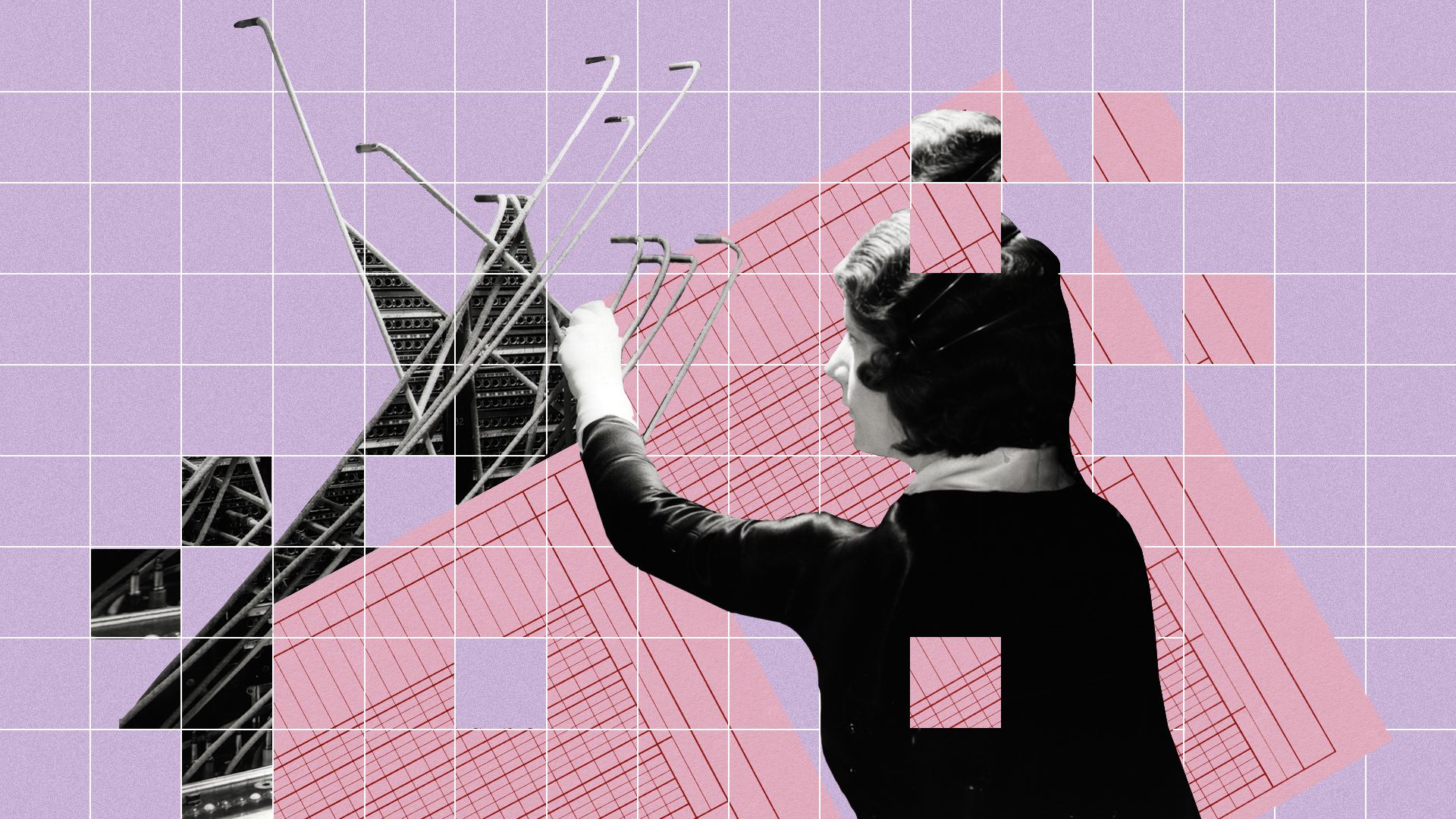
Illustration: Aïda Amer/Axios
You may be under closest watch when you're on the clock.
What's happening: New technologies have made it easy and cheap to surveil workers, checking for everything from intellectual property theft to good old Facebook slacking. And the list of behavior being watched is growing.
Why it matters: Employers amassing data on their workers' movements, actions, habits and even emotions can wield sweeping power over them.
- And employees under surveillance find it difficult to reject it — if they're told about it at all.
Since private detectives were first hired in the 1850s to tail employees and report back, workers have had little privacy on the job.
- IT departments regularly bug office workers' computers. Employers can install software to see every keystroke and print job, and even record every computer's screen at all times.
- Email monitoring that once flagged predetermined keywords can now scan every message for emotional cues, giving bosses a heads up if someone's likely to quit, or if they seem to be considering corporate sabotage.
- Cameras and sensors can monitor how long each individual worker spends at their desk.
For those who don't work in an office, surveillance can be just as dogged.
- GPS logs drivers' movements and even their driving style, and can punish them for deviating from set routes.
- Gig workers like delivery people, cleaners and other app-summoned helpers are watched and rated, not by bosses, but by their customers — and their incomes hinge on the stars they receive.
No federal laws limit how people can be watched at work, says Ifeoma Ajunwa, a law professor at Cornell. Only in a few states — like California and Connecticut — are bosses even required to tell workers that they are being surveilled.
Go deeper:
